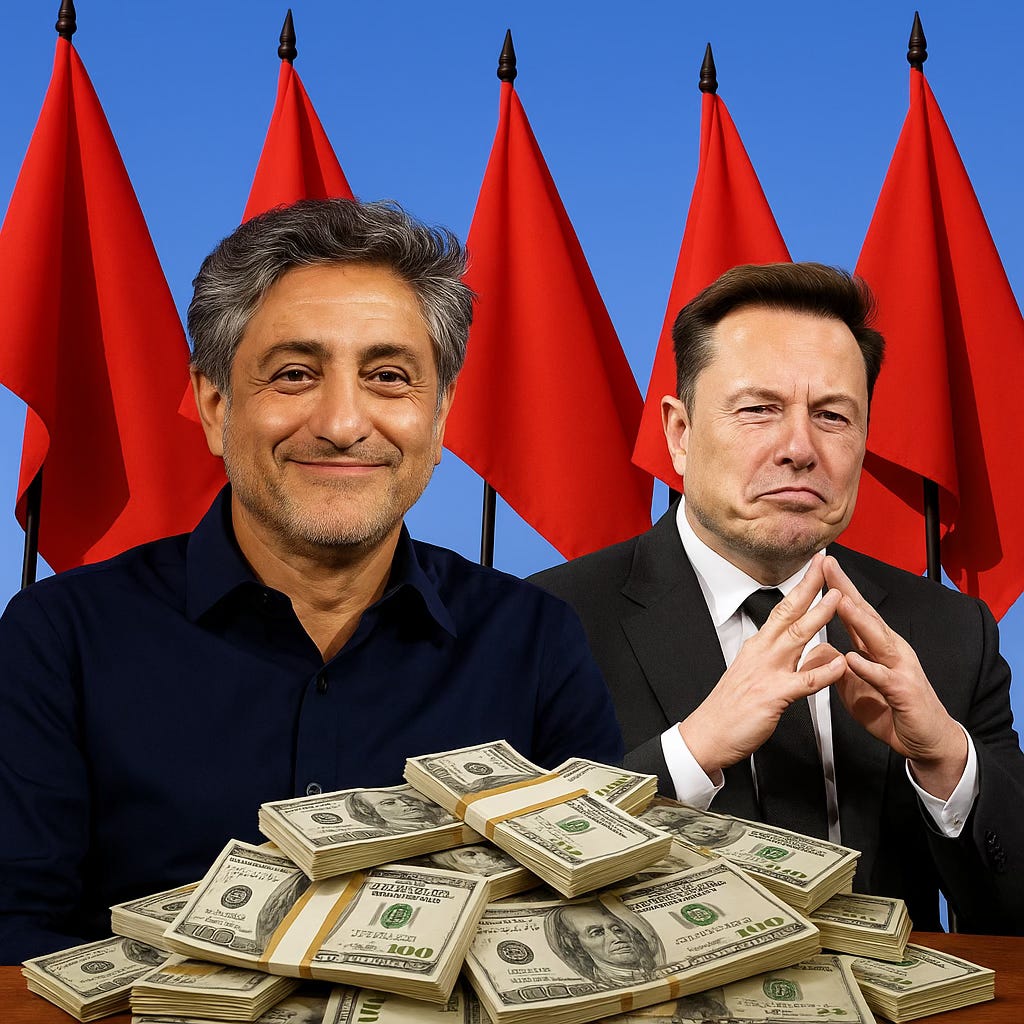- Pascal's Chatbot Q&As
- Posts
- Elon Musk and his long-time business partner Antonio Gracias have been accused of using Americans’ retirement savings to grow richer, all while pushing government policies that hurt ordinary people.
Elon Musk and his long-time business partner Antonio Gracias have been accused of using Americans’ retirement savings to grow richer, all while pushing government policies that hurt ordinary people.
The article from Rolling Stone outlines a complex web of financial and political maneuvers. Here's a breakdown of how it all works. While technically legal, their actions raise major ethical red flags
How Elon Musk and Antonio Gracias Cashed In on Retirement Savings
by ChatGPT-4o
In recent years, Elon Musk — the billionaire behind Tesla and SpaceX — and his long-time business partner Antonio Gracias have been accused of using Americans’ retirement savings to grow richer, all while pushing government policies that hurt ordinary people. The article from Rolling Stone outlines a complex web of financial and political maneuvers. Here's a breakdown of how it all works, explained in plain English.
1. The Basic Mechanism: Public Money Enriching Private Firms
Every month, millions of American workers contribute to public pension funds — retirement savings pools for teachers, firefighters, bus drivers, and other public workers. These funds are supposed to invest safely and wisely to ensure retirees get paid in the future.
Private equity firms like Antonio Gracias’s Valor Equity Partners manage some of that money. Valor received at least $1.7 billion from public pension funds and invested it into companies — including Musk’s SpaceX and xAI (his artificial intelligence firm). That sounds normal, but here’s the trick: whether these investments do well or not, Valor charges big management fees (usually around 2% of the total funds). So, Gracias makes millions just from handling the money, regardless of performance.
This means:
Musk’s companies benefit from huge investments.
Gracias profits from fees.
Pension holders carry the risk.
2. Playing Both Sides: Government and Business
At the same time Musk and Gracias are profiting from public money, they’ve taken control of government agencies through Trump’s Department of Government Efficiency (DOGE). Under DOGE’s leadership, they’ve:
Fired thousands of workers at the Social Security Administration (SSA).
Closed offices, making it harder for people to get retirement or disability benefits.
Marked living people as dead in the system, stopping their checks.
These moves are claimed to fight “fraud,” but in reality, they make it harder for vulnerable people to access help — while Musk and Gracias benefit from government contracts (like missile shields and satellite services).
3. Is This Legal? Yes. Is It Ethical? Questionable.
What Musk and Gracias are doing is, technically, legal. There’s no law against investing public pension funds in private equity or using management fees to make a profit. There’s also no law saying that billionaires can’t influence government policy — even if that policy makes life harder for the public.
But is it ethical?
That’s the real issue. These practices raise serious ethical concerns because:
They use public money (retirement savings) to make billionaires richer.
They cut public services under the guise of “efficiency,” harming vulnerable citizens.
They blur the lines between private business interests and public government responsibilities.
The article compares DOGE’s tactics to private equity “asset stripping” — a method where companies are gutted for short-term gain, leaving long-term harm. Now, that same tactic is being applied to the government itself.
4. Why It Matters
If public pensions are drained by high fees or risky investments, future retirees may have less money when they need it most. If Social Security is dismantled or privatized, millions could lose access to the safety net they paid into their whole lives.
Meanwhile, a few powerful people get even richer.
Conclusion
Elon Musk and Antonio Gracias have found a way to use America’s public retirement funds and government contracts to boost their wealth. While technically legal, their actions raise major ethical red flags. By turning retirement systems and public services into profit engines, they risk undermining trust in both finance and government — all while the rest of us pay the price.
